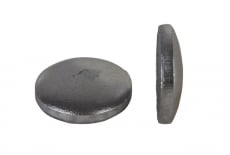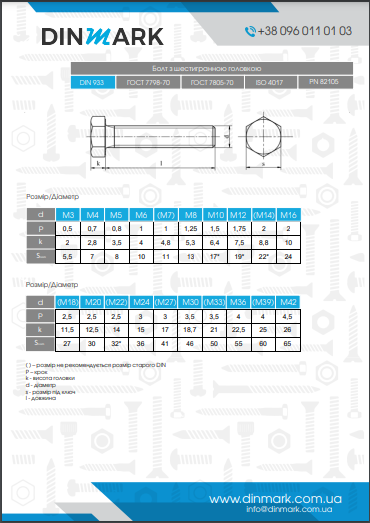
DIN 470 is an international standard that defines the technical specifications of a special type of washer known as a countersunk washer or blind plug. This type of fastener is widely used in various industries and construction due to its versatility and reliability.
Technical Characteristics of DIN 470
DIN 470 washers are characterized by high manufacturing quality and meet strict standard requirements. They have a cylindrical shape with a hole in the middle, whose diameter is usually smaller than the outer diameter of the washer. This design allows for an even distribution of the load on the surface on which it is installed.
Dimensions of DIN 470 Washer/Blind Plug
The dimensions of DIN 470 washers are standardized and determined by the outer diameter, inner diameter, and thickness. The range of sizes is quite wide, allowing you to select a washer for any need. The most common diameters range from a few millimeters to several centimeters.
Strength Grade of DIN 470 Washer/Blind Plug
The strength grade of DIN 470 washers indicates its ability to withstand certain loads. The choice of strength grade depends on the material of the washer and the operating conditions. Most often, washers with a strength grade corresponding to the strength grade of the screw or bolt with which it is used are used.
Fastener Group DIN 470
DIN 470 washers belong to the group of fasteners used to join various materials. They are used in combination with screws, bolts, or other fasteners to increase the strength of the joint, prevent rotation, and protect the surface.
Materials for Manufacturing DIN 470
Most often, DIN 470 washers are made of steel, which provides high strength and durability. However, depending on the operating conditions, other materials can be used, such as:
- Stainless steel: For use in aggressive environments or where corrosion resistance is important.
- Brass: Provides good corrosion resistance and has a high decorative value.
- Aluminum: Lightweight and corrosion-resistant material.
Application Area of DIN 470
DIN 470 washers are widely used in various industries and construction. They are used for:
- Joining metal structures: In mechanical engineering, metal structures.
- Assembling wooden parts: In the furniture industry, construction.
- Fastening plastic parts: In electronics, instrumentation.
- Automotive industry: For joining automotive parts.
Advantages of using DIN 470 washers:
- Even distribution of the load: Prevents deformation of the surface.
- Protection against damage: Prevents scratches and dents.
- Increased support area: Increases the contact area between the fastener and the surface.
- Reduced friction: Improves the sliding of fasteners.
- Versatility: Can be used with various types of fasteners.
Choosing DIN 470 washers
When choosing DIN 470 washers, the following factors should be considered:
- Material to be joined.
- Material thickness.
- Diameter of the hole in the material.
- Expected load.
- Operating conditions (temperature, humidity).
- Material of the washer.
The correct choice of DIN 470 washers will ensure the reliability and durability of any fastening.









